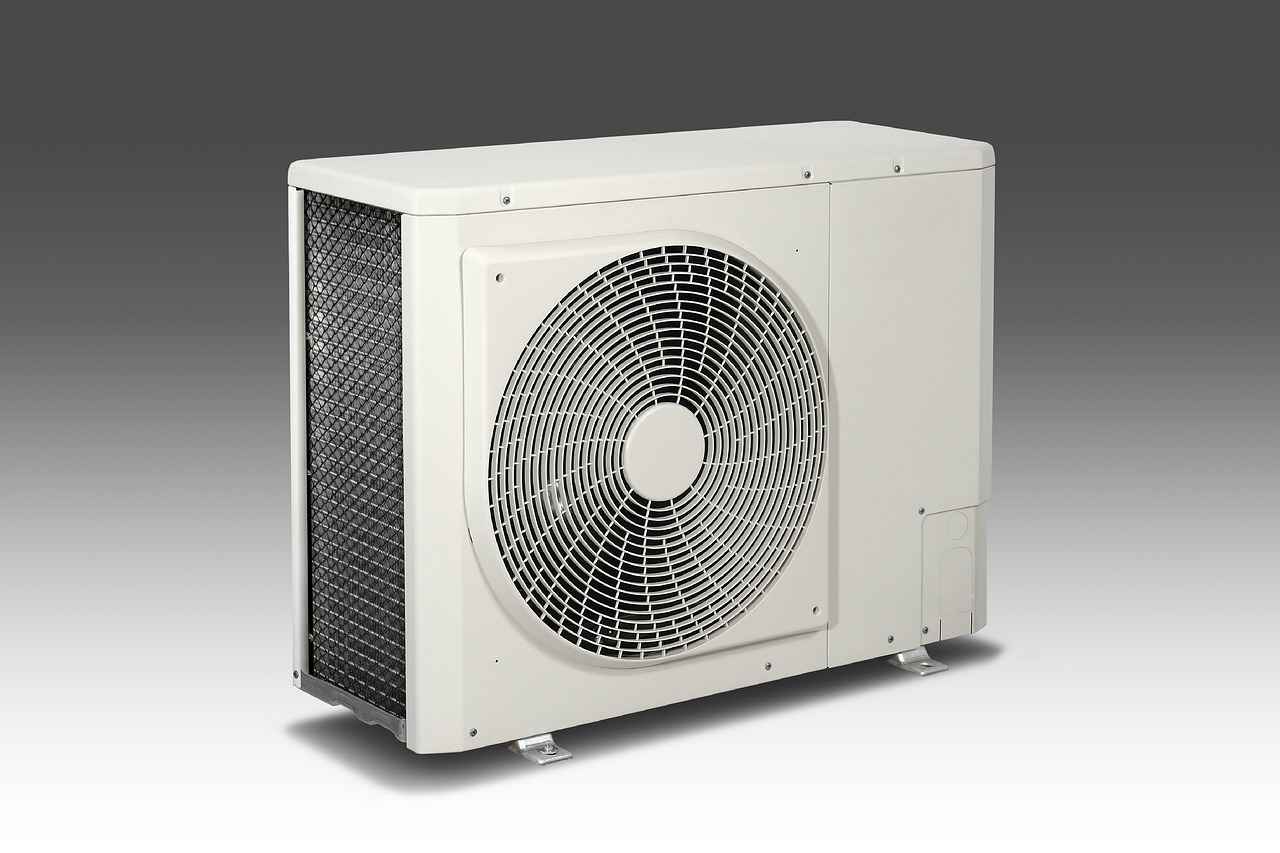This article serves as a comprehensive guide on the A/C compressor specifically for the 2007 Honda Accord. It will delve into the compressor’s functions, the symptoms that indicate potential failure, options for replacement, and essential maintenance tips to keep your A/C system running smoothly.
The A/C compressor is a crucial component of your vehicle’s air conditioning system. Its primary function is to circulate refrigerant throughout the system, which is essential for maintaining optimal cooling performance. The compressor compresses the refrigerant gas, increasing its pressure and temperature, before sending it to the condenser.
Recognizing the signs of a failing A/C compressor can save you both time and money. Common symptoms include:
- Unusual Noises: Grinding or squealing sounds can indicate internal issues.
- Weak Airflow: If the airflow from your vents is weak, it may signal a compressor problem.
- Inconsistent Cooling: If the A/C fails to cool effectively, the compressor may be at fault.
Diagnosing A/C compressor problems involves several steps:
- Checking for Refrigerant Leaks: Look for oily spots around the compressor or hoses, which may indicate a leak.
- Inspecting Electrical Connections: Ensure all connections are secure and free from corrosion, as faulty connections can hinder performance.
- Evaluating System Pressure: Use a gauge to check the pressure levels in the A/C system.
When it comes time to replace the A/C compressor, you have several options:
- OEM Parts: Original Equipment Manufacturer parts are designed specifically for your vehicle, ensuring perfect fit and function.
- Aftermarket Parts: These can vary in quality and price; it’s essential to choose reputable brands.
- Remanufactured Units: These can be a cost-effective solution, but always check for warranty and reliability.
Regular maintenance is vital for prolonging the life of your A/C compressor and ensuring optimal performance:
- Regularly Check Refrigerant Levels: Keeping the correct refrigerant level is crucial for efficient cooling.
- Schedule Routine A/C System Inspections: Periodic inspections by a professional can help catch issues early, maintaining the efficiency of your A/C system.
- Replace Cabin Air Filters: Dirty filters can restrict airflow, impacting cooling efficiency.
By understanding the importance of the A/C compressor and recognizing the signs of failure, you can take proactive steps to maintain your vehicle’s air conditioning system. Regular checks and timely replacements can ensure that your 2007 Honda Accord remains comfortable, especially during hot weather.

What is an A/C Compressor?
The A/C compressor plays a crucial role in ensuring that your vehicle’s air conditioning system operates efficiently. It is the heart of the system, responsible for compressing and circulating the refrigerant. This process is essential for cooling the air that enters the cabin of your vehicle, providing comfort during hot weather. Understanding the function and importance of the A/C compressor can help you maintain your vehicle’s climate control system effectively.
The A/C compressor is a vital component of your vehicle’s air conditioning system, responsible for circulating refrigerant and maintaining optimal cooling performance. It compresses the refrigerant gas, raising its pressure and temperature, before sending it to the condenser. This process transforms the refrigerant from a low-pressure gas into a high-pressure gas, which is then cooled and converted back into a liquid state in the condenser. This cycle is essential for the air conditioning system to function properly.
The operation of the A/C compressor involves several key steps:
- Compression: The compressor takes in low-pressure refrigerant gas from the evaporator and compresses it, increasing its pressure and temperature.
- Circulation: Once compressed, the refrigerant is sent to the condenser, where it releases heat and transforms into a liquid.
- Expansion: The liquid refrigerant then flows through an expansion valve, where it expands and cools before entering the evaporator.
- Cooling: In the evaporator, the refrigerant absorbs heat from the cabin air, providing cool air through the vents.
The A/C compressor is essential for maintaining a comfortable environment inside your vehicle. Without it, the air conditioning system would be unable to cool the air effectively, leading to discomfort during hot weather. Additionally, a malfunctioning compressor can cause further damage to the A/C system, resulting in costly repairs. Regular maintenance and timely repairs can help ensure that your A/C compressor operates efficiently and extends its lifespan.
Being aware of the signs of a failing A/C compressor can save you from expensive repairs:
- Unusual Noises: Grinding or squealing sounds can indicate internal damage.
- Weak Airflow: Reduced airflow from the vents may suggest a compressor issue.
- Inconsistent Cooling: If the air conditioning is not cooling properly, it may be time to check the compressor.
To ensure your A/C compressor lasts, consider the following maintenance tips:
- Regular Inspections: Schedule routine inspections to catch potential issues early.
- Check Refrigerant Levels: Ensure that refrigerant levels are adequate to avoid compressor strain.
- Listen for Noises: Pay attention to any unusual sounds while the A/C is running.
In conclusion, understanding the function and importance of the A/C compressor can greatly enhance your driving experience. By recognizing the signs of potential issues and maintaining your system, you can ensure that your vehicle’s air conditioning remains effective throughout the year.

Symptoms of a Failing A/C Compressor
When it comes to your vehicle’s air conditioning system, the A/C compressor plays an essential role in providing cool air during hot weather. Understanding the is crucial for maintaining comfort and avoiding costly repairs. Recognizing these signs early can save you both time and money.
Several indicators can suggest that your A/C compressor is not functioning correctly. Here are the most common symptoms:
- Unusual Noises: If you hear any strange sounds such as grinding, squealing, or clunking while the A/C is running, it may be a sign of internal damage or wear.
- Weak Airflow: Noticeably reduced airflow from the vents can indicate that the compressor is struggling to circulate refrigerant effectively.
- Inconsistent Cooling: If the air temperature fluctuates between cold and warm, your compressor may not be maintaining proper pressure.
- Visible Signs of Leaks: Look for oily spots around the compressor or hoses, which can indicate refrigerant leaks that compromise system performance.
- Electrical Issues: If the compressor fails to engage when the A/C is turned on, it may be due to electrical problems or faulty connections.
Understanding these symptoms is vital for several reasons:
- Prevent Further Damage: Ignoring these signs can lead to more severe issues within your A/C system, resulting in costly repairs.
- Improved Comfort: A well-functioning A/C compressor ensures that you remain comfortable in your vehicle, especially during hot weather.
- Cost-Effective Maintenance: Early detection of A/C compressor issues can lead to less expensive repairs and prolong the life of your entire air conditioning system.
Diagnosing a failing A/C compressor involves a few key steps:
- Inspect for Refrigerant Leaks: Check for oily residues around the compressor and hoses to identify potential leaks.
- Evaluate System Pressure: Use a gauge to check the refrigerant pressure; low pressure can indicate a failing compressor.
- Examine Electrical Connections: Ensure that all wiring and connections are secure and free from corrosion.
If you notice any of the above symptoms, it is advisable to consult a professional mechanic. They can perform a thorough diagnostic check to determine the exact cause of the problem and recommend appropriate solutions. Ignoring these signs can lead to more extensive damage and higher repair costs down the line.
In summary, recognizing the symptoms of a failing A/C compressor is essential for maintaining your vehicle’s air conditioning system. By paying attention to unusual noises, weak airflow, and inconsistent cooling, you can take proactive measures to address issues before they escalate. Regular maintenance and timely interventions can ensure your A/C system remains in optimal condition, providing you with the comfort you deserve.
Unusual Noises from the A/C System
Unusual noises from your vehicle’s air conditioning (A/C) system can be alarming and indicative of underlying issues that require attention. It’s essential to understand the potential causes of these noises, as they can vary in severity and implications. If you hear grinding, squealing, or clunking sounds while your A/C is running, it may signify problems with the compressor or its components.
Grinding noises often suggest that there is a mechanical issue within the A/C compressor. This could be due to:
- Worn Bearings: Over time, the bearings within the compressor can wear down, leading to a grinding sound as metal components rub against each other.
- Debris in the System: Foreign particles can enter the A/C system, causing damage and resulting in grinding noises as they interfere with the compressor’s operation.
- Misalignment: If the compressor is not properly aligned, it can lead to abnormal wear and grinding sounds during operation.
Squealing noises are often associated with issues in the A/C system’s drive belt. Common causes include:
- Worn or Loose Drive Belt: If the drive belt is worn out or improperly tensioned, it can slip, causing a squealing sound.
- Compressor Clutch Problems: A malfunctioning compressor clutch can also lead to squealing noises as it engages and disengages.
Clunking sounds can be particularly concerning as they may indicate serious issues, such as:
- Internal Damage: If there are broken or damaged components within the compressor, it can lead to clunking noises during operation.
- Loose Parts: Loose components in the A/C system can create clunking sounds as they move around while the compressor is running.
If you experience any of these unusual noises, it’s crucial to take them seriously. Ignoring these sounds can lead to further damage and costly repairs. Here are some signs that indicate you should consult a professional:
- Persistent Noises: If the noises continue after the A/C system has been running for a while, it’s time to get a professional diagnosis.
- Decreased Cooling Performance: If you notice that your A/C is not cooling as effectively, it could be linked to the noises you’re hearing.
- Visible Damage: If you see any signs of wear or damage around the compressor or associated components, do not hesitate to seek help.
Diagnosing A/C compressor problems involves a few key steps:
- Check for Refrigerant Leaks: Look for oily spots around the compressor or hoses, which can indicate a refrigerant leak.
- Inspect Electrical Connections: Ensure all electrical connections are secure and free from corrosion, as faulty connections can impair compressor function.
- Evaluate System Pressure: Use a gauge to check the pressure levels in the A/C system, as improper pressure can lead to compressor issues.
In conclusion, addressing any unusual noises from your A/C system promptly can save you from more significant issues down the line. Regular maintenance and inspections can help ensure your A/C compressor operates efficiently and quietly.
Causes of Noisy A/C Compressors
The air conditioning system in your 2007 Honda Accord is essential for comfort, especially during hot weather. One of the key components of this system is the A/C compressor, which can sometimes produce unusual noises. Understanding the potential causes of these noises is crucial for maintaining the performance and longevity of your vehicle’s A/C system.
Noisy A/C compressors can be a sign of underlying issues that need to be addressed promptly. Here are some common causes:
- Worn Bearings: Over time, the bearings within the compressor can wear out, leading to grinding or squealing noises. This is often due to lack of lubrication or prolonged use.
- Low Refrigerant Levels: Insufficient refrigerant can cause the compressor to work harder than necessary, resulting in unusual sounds. This may be a sign of a leak in the system.
- Debris in the System: Foreign particles can enter the A/C system, causing blockages and leading to noisy operation. This can result from poor maintenance or environmental factors.
- Compressor Clutch Issues: The clutch engages and disengages the compressor as needed. If it is malfunctioning, it can produce clunking or rattling noises when the A/C is turned on.
- Electrical Problems: Faulty electrical connections or issues with the A/C control module can lead to erratic compressor operation, which may manifest as noise.
Ignoring the noises from your A/C compressor can lead to more significant problems down the line. Here’s why you should take action:
- Prevent Further Damage: Addressing the issue early can prevent further damage to the compressor and surrounding components, saving you money on repairs.
- Maintain Comfort: A properly functioning A/C system is vital for your comfort while driving. Noisy compressors often indicate inefficiency, which can lead to poor cooling performance.
- Improve Vehicle Longevity: Regular maintenance and addressing issues promptly can extend the lifespan of your vehicle’s A/C system, ensuring it operates effectively for years to come.
If you experience persistent noise from your A/C compressor, it is advisable to consult a professional mechanic. They can diagnose the problem accurately and recommend the best course of action. Here are some signs that indicate it’s time to seek help:
- Continuous Noise: If the noise does not go away after turning the A/C off and on, it may indicate a serious issue.
- Performance Issues: Weak airflow or inconsistent cooling can be a sign of compressor failure.
- Visible Damage: If you notice any leaks or physical damage around the compressor, it’s crucial to get it checked.
In conclusion, understanding the causes of noisy A/C compressors in your 2007 Honda Accord is essential for maintaining the comfort and efficiency of your vehicle. Regular inspections and prompt attention to any unusual sounds can help ensure that your A/C system operates smoothly and effectively.
When to Seek Professional Help
When it comes to maintaining your vehicle’s air conditioning system, understanding when to seek professional help is crucial. The A/C compressor plays a significant role in ensuring your car remains cool during hot weather. If you notice any abnormalities, particularly unusual noises, it is essential to take action promptly.
While some minor issues can be addressed at home, certain signs indicate that a professional mechanic should evaluate your A/C system. Here are some key indicators:
- Persistent Unusual Noises: If you hear grinding, squealing, or clunking sounds that do not go away, this could suggest a serious problem with the A/C compressor or its components.
- Weak Airflow: If the airflow from the vents is weak, it may signal a failing compressor or blockages within the system.
- Inconsistent Cooling: If your vehicle’s A/C system is unable to maintain a consistent temperature, it’s time to consult a professional.
Ignoring these symptoms can lead to more severe issues and costly repairs down the line. For instance, a failing A/C compressor can affect other components of the air conditioning system, causing a domino effect of failures. Therefore, timely intervention not only saves money but also ensures safety and comfort while driving.
When you consult a professional mechanic, they will perform a thorough inspection of your A/C system. This typically includes:
- Checking Refrigerant Levels: Low refrigerant can lead to compressor strain and ultimately failure.
- Inspecting Electrical Connections: Faulty connections can prevent the compressor from functioning properly.
- Evaluating System Pressure: Proper pressure is crucial for efficient cooling and functionality.
Consulting a professional offers several advantages:
- Expert Diagnosis: Mechanics have the training and experience to identify problems that may not be apparent to the average car owner.
- Access to Specialized Tools: Professionals have the necessary tools to perform repairs accurately and safely.
- Warranty Considerations: Many repairs come with warranties that can provide peace of mind.
In conclusion, if you notice any unusual noises or other symptoms from your A/C system, it is crucial to consult a professional mechanic. Early diagnosis and treatment can prevent more extensive damage and ensure your vehicle remains comfortable and safe to drive. Remember, your comfort and safety are paramount, so don’t hesitate to seek help when needed.
Weak Airflow from the Vents
is a common issue that many vehicle owners encounter, particularly in models like the 2007 Honda Accord. This problem can stem from various underlying causes, and understanding these can help you address the situation effectively. In this section, we will explore the reasons behind weak airflow, the implications of this issue, and the steps you can take to diagnose and remedy it.
Weak airflow can indicate several potential problems within your vehicle’s air conditioning system. Here are some common causes:
- Failing A/C Compressor: The compressor is essential for circulating refrigerant throughout the system. If it is malfunctioning, you may experience reduced airflow.
- Blockages in the Ductwork: Debris or obstructions in the ductwork can restrict airflow, leading to weak performance.
- Dirty or Clogged Filters: A dirty cabin air filter can impede airflow, making it harder for conditioned air to reach the cabin.
- Low Refrigerant Levels: Insufficient refrigerant can hinder the cooling process, resulting in weak airflow.
When airflow is weak, your vehicle’s air conditioning system struggles to maintain a comfortable temperature inside the cabin. This can lead to:
- Increased Cabin Temperature: The lack of cool air can make the interior uncomfortably warm, especially during hot weather.
- Higher Energy Consumption: A failing compressor or blockages can force the system to work harder, leading to increased fuel consumption.
- Potential Damage to the A/C System: Continuing to operate the A/C system with weak airflow can cause further damage, potentially leading to costly repairs.
Diagnosing the cause of weak airflow involves a few straightforward steps:
- Inspect the Cabin Air Filter: Check if the filter is dirty or clogged and replace it if necessary.
- Check for Blockages: Look for any visible obstructions in the vents or ductwork.
- Test the A/C Compressor: Listen for unusual noises or check for signs of wear and tear.
- Monitor Refrigerant Levels: Ensure that the refrigerant is at the appropriate level for optimal performance.
If you notice weak airflow from your A/C vents, it is essential to take action promptly. Here are some steps you can follow:
- Consult a Professional Mechanic: If you are unable to identify the issue, it’s best to consult a qualified technician who can diagnose and repair the problem.
- Regular Maintenance: Schedule routine inspections and maintenance for your A/C system to prevent issues before they arise.
- Consider Upgrading Components: If your A/C compressor or other components are outdated, consider upgrading to improve efficiency.
In summary, weak airflow from the vents is a significant concern that can affect your vehicle’s comfort and efficiency. By understanding the causes and taking appropriate action, you can ensure that your A/C system operates effectively, keeping you cool and comfortable on the road.

How to Diagnose A/C Compressor Issues
Diagnosing A/C compressor problems is crucial for maintaining a comfortable driving experience, especially during the hot summer months. A malfunctioning compressor can lead to inadequate cooling, which can be frustrating and potentially costly if left unaddressed. This guide will walk you through the essential steps to accurately diagnose A/C compressor issues.
One of the first steps in diagnosing A/C compressor issues is to check for refrigerant leaks. Refrigerant is the lifeblood of your air conditioning system, and any loss can significantly hinder performance. Here are some signs to look for:
- Oily spots around the compressor or hoses, which indicate refrigerant leakage.
- Unusual hissing sounds may also suggest a leak in the system.
- Low refrigerant levels can lead to a reduction in cooling efficiency.
Another critical area to evaluate is the electrical connections to the A/C compressor. Faulty or corroded connections can prevent the compressor from operating correctly. Follow these steps:
- Examine all wiring for signs of wear and tear.
- Ensure that all connectors are securely fastened and free of corrosion.
- Test the electrical circuit using a multimeter to ensure proper voltage is reaching the compressor.
Understanding the system pressure is vital for diagnosing A/C compressor issues. Use a pressure gauge to measure the high and low sides of the A/C system:
- A low pressure reading on the low side may indicate a refrigerant leak or an issue with the compressor.
- A high pressure reading on the high side can signal a blockage in the system or a failing compressor.
Pay attention to any unusual noises coming from the A/C system while it is running. Sounds such as grinding, squealing, or clunking can indicate a problem with the compressor or its components:
- Grinding noises may suggest worn bearings.
- Squealing sounds could indicate a slipping serpentine belt.
- Clunking noises often point to internal damage within the compressor.
Another sign of A/C compressor issues can be system overheating. If the compressor is working too hard due to low refrigerant levels or electrical problems, it may overheat:
- Inspect the compressor for signs of overheating, such as discoloration or melting.
- Ensure that the condenser is not blocked, as this can lead to overheating.
If you are unable to diagnose the issue after following these steps, it’s advisable to consult a professional mechanic. They have the tools and expertise to accurately diagnose and resolve A/C compressor problems:
- Professional mechanics can perform a comprehensive diagnostic check.
- They can also recommend appropriate repair or replacement options.
By following these guidelines, you can effectively diagnose A/C compressor issues and take the necessary steps to restore your vehicle’s cooling system. Regular maintenance and timely repairs can save you from more significant problems down the road.
Checking for Refrigerant Leaks
The efficiency of your vehicle’s air conditioning system heavily relies on the proper functioning of its components, especially the A/C compressor. One of the most common issues that can arise is refrigerant leaks. Understanding how to identify these leaks is crucial for maintaining optimal cooling performance.
Refrigerant leaks are not just a minor inconvenience; they can lead to significant performance issues in your A/C system. When refrigerant levels drop, the compressor has to work harder to maintain the desired temperature, which can ultimately lead to premature failure of the compressor itself. Not only does this affect cooling efficiency, but it can also result in costly repairs.
Detecting refrigerant leaks early can save you time and money. Here are some common signs to look for:
- Oily Spots: Check for any oily residue around the compressor or hoses. This can indicate a leak, as the refrigerant often carries oil with it.
- Unusual Noises: Listen for hissing or bubbling sounds, which may suggest that refrigerant is escaping from the system.
- Weak Airflow: If the air coming from your vents is weak or not cold, it could be a sign that the refrigerant levels are low due to a leak.
To effectively check for refrigerant leaks, follow these steps:
- Visual Inspection: Begin with a thorough visual inspection of the A/C system components, looking for any signs of oil or damage.
- Use a Leak Detection Kit: Consider using a refrigerant leak detection kit, which can help you identify leaks more accurately. These kits often include UV dye that can be added to the refrigerant.
- Monitor System Pressure: Use a pressure gauge to check the system’s pressure. Low pressure readings can indicate a refrigerant leak.
If you suspect or find a refrigerant leak, it’s essential to take action promptly:
- Consult a Professional: While some minor leaks can be fixed at home, it’s generally advisable to consult a professional mechanic to ensure that the repair is done correctly.
- Repair or Replace Components: Depending on the severity of the leak, you may need to repair the affected parts or replace them entirely.
- Recharge the System: After repairs, the refrigerant will need to be recharged to restore proper function.
To minimize the risk of refrigerant leaks in the future, consider the following maintenance tips:
- Regular Inspections: Schedule routine A/C system inspections to catch potential issues early.
- Maintain Proper Refrigerant Levels: Regularly check and maintain the correct refrigerant levels to prevent strain on the compressor.
- Protect Components: Ensure that the A/C system components are protected from debris and damage through regular cleaning and maintenance.
By staying vigilant and proactive about checking for refrigerant leaks, you can ensure that your A/C system remains in top condition, providing you with the comfort you need while driving.
Inspecting Electrical Connections
When it comes to maintaining your vehicle’s air conditioning system, one of the most critical aspects is ensuring that all electrical connections to the A/C compressor are secure and free of corrosion. Neglecting this vital step can lead to significant issues, as faulty connections may prevent the compressor from functioning properly, ultimately affecting the overall performance of your A/C system.
The A/C compressor relies on a series of electrical connections to operate effectively. These connections power the compressor’s motor, allowing it to compress refrigerant and circulate it through the system. If any of these connections are loose, damaged, or corroded, the compressor may not receive adequate power, leading to malfunctioning and inefficient cooling.
- Visual Inspection: Start by visually inspecting the electrical connections on the A/C compressor. Look for signs of corrosion, such as a white or greenish buildup around the terminals.
- Check Tightness: Ensure that all connections are tightly secured. Loose connections can often be tightened by hand or with a wrench.
- Use a Multimeter: If you suspect an issue, use a multimeter to test the electrical continuity of the connections. This will help you determine if there is a break in the circuit.
Several factors can contribute to electrical connection problems in your A/C compressor:
- Moisture Intrusion: Water can cause corrosion, which is detrimental to electrical connections. Ensure that all connections are sealed properly to prevent moisture from entering.
- Vibration: The constant vibrations from the engine can loosen connections over time. Regularly check and tighten connections as part of your vehicle maintenance routine.
- Wear and Tear: Over time, wires can fray or become damaged, leading to poor connections. Inspect wiring for any signs of wear and replace as necessary.
To avoid future issues with electrical connections, consider the following preventative measures:
- Regular Maintenance: Schedule routine inspections of your A/C system to catch potential problems early.
- Protective Coatings: Apply dielectric grease to electrical connections to help prevent corrosion.
- Keep the Area Clean: Ensure that the area around the A/C compressor is free from debris and dirt, which can contribute to connection issues.
If you are not comfortable inspecting or repairing electrical connections yourself, it is advisable to seek help from a qualified mechanic. They have the tools and expertise to diagnose and resolve any issues efficiently, ensuring your A/C system operates at its best.
In summary, regularly inspecting and maintaining the electrical connections to your A/C compressor is essential for optimal performance. By taking proactive steps, you can prevent costly repairs and ensure a comfortable driving experience.

Replacement Options for the A/C Compressor
When it comes to your vehicle’s air conditioning system, the A/C compressor plays a crucial role in ensuring you stay cool during the hot months. However, like all mechanical components, it may eventually need replacement. Understanding your options can save you time and money while ensuring optimal performance.
When it’s time to replace the A/C compressor, you have several options to consider, including OEM parts, aftermarket parts, and remanufactured units. Each of these options has its own set of benefits and drawbacks, making it essential to weigh your choices carefully.
OEM (Original Equipment Manufacturer) parts are components made by the same manufacturer that produced the original parts for your vehicle. These parts are designed to meet the exact specifications of your vehicle, ensuring a perfect fit and optimal performance.
- Pros: Guaranteed compatibility, high quality, and often come with a warranty.
- Cons: Generally more expensive than other options.
Aftermarket parts are produced by third-party manufacturers and can vary significantly in quality and price. These parts are designed to fit a wide range of vehicles but may not always match the original specifications.
- Pros: Typically more affordable and available in a variety of options.
- Cons: Quality can vary, and some parts may not perform as well as OEM parts.
Remanufactured compressors are used units that have been rebuilt to meet or exceed original specifications. This process often includes replacing worn components and testing the unit to ensure it functions correctly.
- Pros: More affordable than new OEM parts, environmentally friendly, and often come with a warranty.
- Cons: May not have the same lifespan as new components, and quality can vary by manufacturer.
When deciding which replacement option is best for your A/C compressor, consider the following:
- Budget: Determine how much you are willing to spend on the replacement.
- Vehicle Age: For older vehicles, aftermarket or remanufactured parts may be more cost-effective.
- Warranty: Always check the warranty offered, as this can provide peace of mind.
- Installation: Consider whether you will install the compressor yourself or hire a professional, as this can affect your overall costs.
In summary, when it’s time to replace your A/C compressor, you have multiple options to choose from. Each choice comes with its own set of advantages and disadvantages. By understanding these options, you can make an informed decision that best fits your needs and budget. Whether you opt for OEM, aftermarket, or remanufactured units, ensuring that your vehicle’s A/C system is functioning optimally is essential for your comfort on the road.
OEM vs. Aftermarket Compressors
OEM (Original Equipment Manufacturer) compressors and aftermarket options play a crucial role in maintaining your vehicle’s air conditioning system. Understanding the differences between these two types of compressors can help you make an informed decision when it’s time for a replacement.
OEM compressors are specifically designed and manufactured by the original vehicle manufacturer. They are tailored to meet the exact specifications of your vehicle model, ensuring a perfect fit and optimal performance. This means that when you choose an OEM compressor for your 2007 Honda Accord, you can expect it to work seamlessly with the existing components of your A/C system.
- Quality Assurance: OEM parts undergo rigorous testing and quality control to ensure they meet safety and performance standards.
- Perfect Fit: Since they are designed specifically for your vehicle, installation is straightforward, reducing the risk of compatibility issues.
- Warranty Coverage: OEM compressors typically come with a manufacturer’s warranty, providing peace of mind in case of defects or failures.
Aftermarket compressors are produced by third-party manufacturers and are not made by the original vehicle manufacturer. They often come in various price ranges and qualities, which can be appealing for budget-conscious consumers.
- Cost-Effectiveness: Aftermarket options are usually less expensive than OEM parts, making them an attractive choice for those looking to save money.
- Variety: There are many aftermarket brands available, offering a range of features and performance levels.
- Potential Quality Variability: The quality of aftermarket compressors can vary widely. Some may perform well, while others might not meet the same standards as OEM parts.
When deciding between an OEM and an aftermarket compressor, consider the following factors:
- Vehicle Age: For older vehicles, aftermarket options might be more readily available and affordable.
- Usage: If you rely heavily on your vehicle or live in a hot climate, investing in an OEM compressor might offer better long-term reliability.
- Warranty: Check the warranty terms for both options. An OEM part may offer better coverage compared to an aftermarket option.
Regardless of the type of compressor you choose, proper installation is crucial. It is recommended to have a professional mechanic handle the installation to avoid potential issues. Additionally, regular maintenance of your A/C system, such as checking refrigerant levels and inspecting for leaks, will help prolong the life of your compressor.
In summary, both OEM and aftermarket compressors have their advantages and disadvantages. Assess your specific needs, budget, and the importance of reliability when making your choice. By understanding these differences, you can ensure that your A/C system remains functional and efficient.
Pros and Cons of Remanufactured Compressors
When considering an A/C compressor replacement for your vehicle, remanufactured compressors often present a tempting option due to their cost-effectiveness. However, before making a decision, it’s crucial to weigh the benefits against potential drawbacks. This article will delve into the advantages and disadvantages of choosing remanufactured compressors, helping you make an informed choice.
Remanufactured compressors are units that have been completely disassembled, cleaned, and repaired to meet original specifications. This process often includes replacing worn or damaged parts and testing the unit to ensure it functions like new. Understanding this definition is key to evaluating their reliability and warranty options.
- Cost Savings: One of the most significant benefits of remanufactured compressors is their lower price compared to new OEM parts. This can lead to substantial savings, especially for older vehicles.
- Environmental Benefits: Opting for remanufactured parts can reduce waste and promote sustainability. By reusing components, you contribute to less environmental impact.
- Performance Standards: Many remanufactured units are restored to meet or exceed OEM performance standards. This means you can enjoy reliable cooling without the high price tag.
- Warranty Concerns: While many remanufactured compressors come with warranties, they may not be as comprehensive as those for new units. It’s essential to read the fine print and understand what is covered.
- Variable Quality: The quality of remanufactured compressors can vary significantly between manufacturers. Some may cut corners during the remanufacturing process, leading to reliability issues.
- Limited Availability: Depending on your vehicle make and model, remanufactured compressors may not always be readily available, potentially delaying repairs.
Before deciding on a remanufactured compressor, consider the following:
- Research the Manufacturer: Look for reputable manufacturers known for their quality remanufactured parts.
- Check Warranty Terms: Ensure the warranty is satisfactory and covers critical components.
- Read Customer Reviews: Insights from other customers can provide valuable information about the reliability and performance of the compressor.
The reliability of remanufactured compressors can vary widely. It’s crucial to choose a reputable supplier and ensure the unit has undergone rigorous testing. Many users report satisfactory performance, but it’s essential to approach your purchase with due diligence.
In conclusion, while remanufactured compressors can offer significant cost savings and environmental benefits, they come with potential risks regarding warranty and quality. By carefully evaluating your options and considering the factors mentioned above, you can make a decision that best suits your needs and ensures the longevity of your vehicle’s A/C system.

Maintenance Tips for A/C Systems
Maintaining your vehicle’s air conditioning (A/C) system is essential for ensuring comfort during hot weather. Regular maintenance can significantly prolong the life of your A/C compressor and overall system, ensuring optimal performance throughout the year. This section provides key maintenance tips to help you keep your A/C system running efficiently.
Regular maintenance is crucial for the longevity and efficiency of your A/C system. A well-maintained A/C compressor operates smoothly, reducing the risk of breakdowns and costly repairs. Additionally, it ensures that your vehicle’s interior remains cool and comfortable even in the hottest weather.
- Regularly Check Refrigerant Levels: Maintaining the correct refrigerant level is essential for efficient cooling. Low refrigerant levels can lead to compressor strain, resulting in potential failure. It’s advisable to check the refrigerant levels at least once a year.
- Inspect the A/C System for Leaks: Look for oily spots around the compressor or hoses, which may indicate refrigerant leaks. Addressing leaks promptly can prevent further damage to the compressor and enhance system performance.
- Clean or Replace Cabin Air Filters: A clogged cabin air filter restricts airflow, making your A/C system work harder to cool the interior. Regularly cleaning or replacing the filter can improve airflow and efficiency.
- Schedule Routine A/C System Inspections: Periodic inspections by a professional mechanic can catch issues early. These inspections typically include checking the compressor, condenser, and evaporator for any signs of wear or damage.
- Run the A/C System Regularly: Even in cooler months, run your A/C system for about 10 minutes every few weeks. This helps keep the compressor lubricated and prevents seals from drying out, which can lead to leaks.
- Monitor System Performance: Pay attention to how your A/C system performs. If you notice any unusual noises, weak airflow, or inconsistent cooling, address these issues immediately to avoid further damage.
- Neglecting Routine Checks: Skipping regular maintenance checks can lead to serious issues down the line. Make it a habit to inspect your A/C system regularly.
- Using Incorrect Refrigerant: Always use the type of refrigerant recommended for your vehicle. Using the wrong type can damage the A/C system.
- Ignoring Warning Signs: If your A/C system is not performing as expected, don’t ignore it. Addressing problems early can save you from costly repairs later.
By following these maintenance tips, you can ensure that your A/C compressor and system remain in top condition. Regular maintenance not only enhances performance but also increases the lifespan of your A/C system, providing you with reliable cooling for years to come.
Regularly Check Refrigerant Levels
Maintaining the correct refrigerant level is essential for the optimal performance of your vehicle’s air conditioning system. A well-functioning A/C system not only keeps you comfortable during hot weather but also ensures that the engine runs efficiently. In this section, we will delve into why regular checks of refrigerant levels are crucial, the potential consequences of neglecting this maintenance task, and practical tips for keeping your A/C system in top shape.
The refrigerant is the lifeblood of your A/C system. It circulates through the system, absorbing heat from the cabin and releasing it outside, thereby providing efficient cooling. When the refrigerant level is too low, the compressor has to work harder to achieve the desired temperature, leading to increased wear and tear.
- Increased Compressor Strain: A low refrigerant level forces the compressor to operate under greater pressure, which can lead to premature failure.
- Reduced Cooling Efficiency: Insufficient refrigerant means that the air conditioning system cannot cool the cabin effectively, resulting in discomfort during hot weather.
- Potential System Damage: Operating with low refrigerant can cause damage to other components in the A/C system, leading to costly repairs.
It is advisable to check your refrigerant levels at least once a year, preferably before the summer season begins. Additionally, if you notice any signs of reduced cooling efficiency or hear unusual noises from the A/C system, it’s time for an immediate inspection.
Being aware of the symptoms of low refrigerant can save you from expensive repairs down the line. Common indicators include:
- Warm Air from Vents: If the air coming from your A/C vents is warmer than expected, it may indicate low refrigerant levels.
- Increased Noise: A struggling compressor may produce unusual sounds, signaling that it is working harder than it should.
- Visible Leaks: Look for oily spots around the compressor or hoses, which can indicate refrigerant leaks.
Checking refrigerant levels can be done through the following methods:
- Using a Manifold Gauge Set: This tool connects to the service ports on your A/C system to measure pressure levels, providing an accurate reading of refrigerant levels.
- Professional Inspection: If you’re unsure about checking refrigerant levels yourself, it’s best to consult a professional mechanic who can perform a thorough inspection.
To maintain the correct refrigerant levels, consider the following tips:
- Regular Inspections: Schedule routine inspections with a qualified technician to ensure your A/C system remains in good condition.
- Address Leaks Promptly: If you suspect a refrigerant leak, have it repaired immediately to prevent further damage to your A/C system.
- Use Quality Refrigerant: Always use the type of refrigerant specified for your vehicle to ensure optimal performance.
In conclusion, regularly checking your refrigerant levels is a simple yet vital aspect of maintaining your vehicle’s A/C system. By being proactive and attentive to the signs of low refrigerant, you can ensure that your A/C system operates efficiently, providing you with the comfort you need during those hot summer months.
Schedule Routine A/C System Inspections
Maintaining the efficiency of your vehicle’s air conditioning system is essential for comfort, especially during hot weather. One of the most effective ways to ensure your A/C system operates smoothly is through routine inspections by a professional. These inspections can identify potential issues before they escalate, thereby saving you both time and money in the long run.
Routine inspections serve as a proactive approach to vehicle maintenance. By scheduling these assessments, you can:
- Detect Problems Early: Professionals can spot minor issues that may lead to major repairs if left unchecked.
- Enhance Efficiency: A well-maintained A/C system operates more efficiently, resulting in lower fuel consumption.
- Extend Lifespan: Regular check-ups can prolong the life of your A/C compressor and associated components.
During a routine A/C inspection, a qualified technician will:
- Check Refrigerant Levels: Ensuring that the refrigerant is at the correct level is crucial for optimal cooling performance.
- Inspect for Leaks: The technician will look for signs of refrigerant leaks, such as oily spots around the compressor or hoses.
- Evaluate Electrical Components: All electrical connections will be assessed to ensure they are secure and free from corrosion.
- Test System Pressure: Proper system pressure is vital for effective cooling, and this will be measured during the inspection.
It is generally recommended to have your A/C system inspected at least once a year. However, if you notice any symptoms of a failing A/C compressor, such as:
- Unusual Noises: Grinding or squealing sounds can indicate a problem.
- Weak Airflow: If the air coming from the vents is weak, this could signal an underlying issue.
- Inconsistent Cooling: If the temperature fluctuates, it’s time for an inspection.
While some vehicle owners may attempt to inspect their A/C systems themselves, professional inspections provide several advantages:
- Expert Knowledge: Professionals are trained to identify issues that an untrained eye might miss.
- Advanced Tools: Technicians have access to specialized equipment that can accurately diagnose problems.
- Comprehensive Service: A professional inspection often includes additional checks that can contribute to overall vehicle health.
In summary, scheduling routine A/C system inspections is a crucial practice for maintaining the efficiency and longevity of your vehicle’s air conditioning system. By investing in regular professional assessments, you can ensure that your A/C compressor and the entire system operate at their best, providing you with comfort and peace of mind.
Frequently Asked Questions
- What are the common signs of a failing A/C compressor?
Common signs include unusual noises like grinding or squealing, weak airflow from the vents, and inconsistent cooling. If you notice any of these, it might be time to check your A/C compressor.
- How can I diagnose issues with my A/C compressor?
You can diagnose issues by checking for refrigerant leaks, inspecting electrical connections, and evaluating system pressure. Look for oily spots around the compressor or hoses, which can indicate a leak.
- What are my options for replacing the A/C compressor?
You have several options: OEM (Original Equipment Manufacturer) parts, aftermarket parts, and remanufactured units. Each has its pros and cons, so consider your budget and reliability needs.
- How can I maintain my A/C system for optimal performance?
Regularly check refrigerant levels and schedule routine inspections with a professional. This proactive approach can help catch issues early and prolong the life of your A/C compressor.
- Is it worth it to buy a remanufactured A/C compressor?
Remanufactured compressors can be cost-effective, but ensure you check the warranty and reliability. Sometimes, spending a little more on a new unit can save you headaches down the road.














